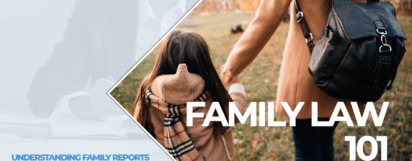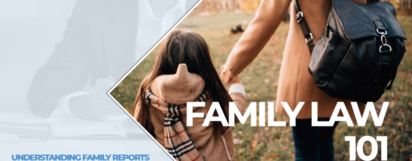-
Freeman Family Law
Operating Since 1992

Thanks to the prevalence of Hollywood and American terminology, most people would be familiar with the term ‘Prenup’ or Prenuptial Agreement. But did you know in Australian law, there is actually no such thing as a ‘Prenuptial Agreement’? Instead, the Family Law Act refers to what we know as ‘Binding Financial Agreements’. Often termed the ‘Australian Prenup’ in family law circles, a ‘Binding Financial Agreement’ is an agreement entered into by two parties who are either in or entering a de-facto relationship or marriage which does the following:
NOTE:
How do you know if you’re in a de-facto relationship? A de-facto relationship is usually defined as follows: “when two people are not married but live together or have lived together as a couple on a genuine domestic basis. The same laws apply to same-sex couples as to heterosexual (different-sex) couples.”
Wanting to enter or discussing the possibility of a Binding Financial Agreement can be a difficult thing to bring up with another party or talk about openly. In this article, we look at when these agreements should be considered, how they should work and how to arrange them.
No one finds themselves in a de facto relationship or enters into a marriage in the hope that things end with separation and/or divorce (or at least that’s what we hope). However, there are times where one or both parties in a relationship may wish to reach an understanding of what things would look like financially in the event that the relationship does not work out. This is when a Binding Financial Agreement should be discussed. As set out above, a Binding Financial Agreement is used to:
Freeman Family Law has extensive experience in working on Binding Financial Agreements. Typically these agreements are sought in (but are in no way limited to) the following scenarios:
Of course, they can equally apply to first marriages or de-facto relationships, regardless of the assets either party is bringing to the relationship. A good Binding Financial Agreement will also consider what might happen in the future. For example, how will assets be divided in the event that the couple has children?
If you find yourself wondering about any of these questions before marriage or now that you’ve found yourself in a de facto relationship, then it might be a good time to talk to your partner about a Binding Financial Agreement and seeking some legal advice specific to your circumstances.
A Binding Financial Agreement is not by default, a foolproof way of guaranteeing that assets will be split the way you want in the event of a breakdown of your relationship. These documents are complex and require a strong knowledge of the law. There are a number of common pitfalls that often bring these agreements undone, so it is crucial that if the ‘Aussie Pre-Nup’ is something you are interested in doing prior to marriage or once you’ve found yourself in a de-facto relationship that you consult with experts such as Freeman Family Law. For a Binding Financial Agreement to be binding, the following requirements must be met:
So, when can these agreements be contested? Some, but not all of the grounds for contesting an agreement include:
The agreement is vague or unclear: it is essential that the agreement is clear and consistent in its terms. An agreement that contains ‘sloppy’ drafting or is unclear or vague may be overturned wholly or in part by the Court.
The agreement was signed under duress or with the pressure of a deadline: If an agreement is presented to the other party the day before the wedding, for example, the agreement may not be binding. In some cases, it might be advantageous to wait until after the wedding to ensure that no party can argue that the agreement was entered into under duress.
The agreement does not comply with the formalities prescribed by the Family Law Act 1975: Care must be taken by the solicitor drafting the document to ensure this is done. Failure to do so may affect the enforceability of the agreement.
Of course, there are a number of other grounds on which an agreement may be contested. That is why it is crucial that both parties receive independent and individualised legal advice from Accredited Specialists with expertise in this area of the law. Whilst this might make the process of forming an agreement take longer, the more discussions that take place in forming the agreement, the stronger the agreement will be.
Perhaps the most difficult part of entering a Binding Financial Agreement is finding a way to broach the subject with your partner. Typically, this can be a bit easier for parties entering a second or third marriage or a de-facto relationship after marriage. While these agreements can take a while to negotiate and may be sensitive to bring up in general, they can provide peace of mind and provide significant savings in the future, in terms of legal costs, emotional pain and stress and time should the relationship break down.
If you believe you may require a Binding Financial Agreement, you should discuss the possibility with your partner and make an appointment with Freeman Family Law to discuss your requirements.
Freeman Family Law has been assisting clients for over 30 years on matters involving divorce or separation, complex financial and property issues, as well as advice on parenting and wills & estates. Book an appointment with an Accredited Family Law Specialist online or at one of our offices in Yarraville, South Melbourne, Caroline Springs, Essendon or Mornington.
Enquire Now
Coronavirus (COVID19) Outbreak 

Parenting Orders & COVID 19 

Preparing for your first online family law consultation 

The Bank of Mum and Dad: What to consider when helping children buy property 

Family Law 101: What to do when you receive a letter from a family lawyer 

What happens when couples kiss and makeup…and separate again? 

Family Law 101: Understanding Family Reports 

Report: 42 per cent of people have experienced a negative change in their relati ... 

We’re Open For Business | A Freeman Family Law Stage Four Lockdown Update 

Four reasons why not having a Will causes more heartbreak for your loved ones 

Protecting children from “Unacceptable Risk” 

Who gets what? How inheritances are treated in family law 

Tick, tock: Time limits and post-divorce/post-separation applications for proper ... 

Gut feeling and the Family Court 

Christmas, Separation and Kids: Handling Holiday Arrangements 

Time is Money: Why Mediation could be a better solution to your Family Court mat ... 

What is Collaborative Law? 

The Merging of the Family Law Courts – What Has Changed? 

Relationship Property Settlements for Business Owners – What You Need to K ... 

Family Law Property Settlement for Business Owners: What You Need To Know. 

Accredited Specialists Freeman Family Law announce new office in Mornington Peni ... 

Can a judge order that a child be vaccinated against one parent’s wishes? 

Can a parent get a child vaccinated if the other parent disagrees? 

To vaccinate or not to vaccinate for young children – what if parents can& ... 

Accredited Specialists Freeman Family Law open new office in Dromana 

The Brady Bunch and Mutual Wills 

“Justice” in Family Law 

When Experts Get It Wrong 
Or Send us A Message
Enquire Now